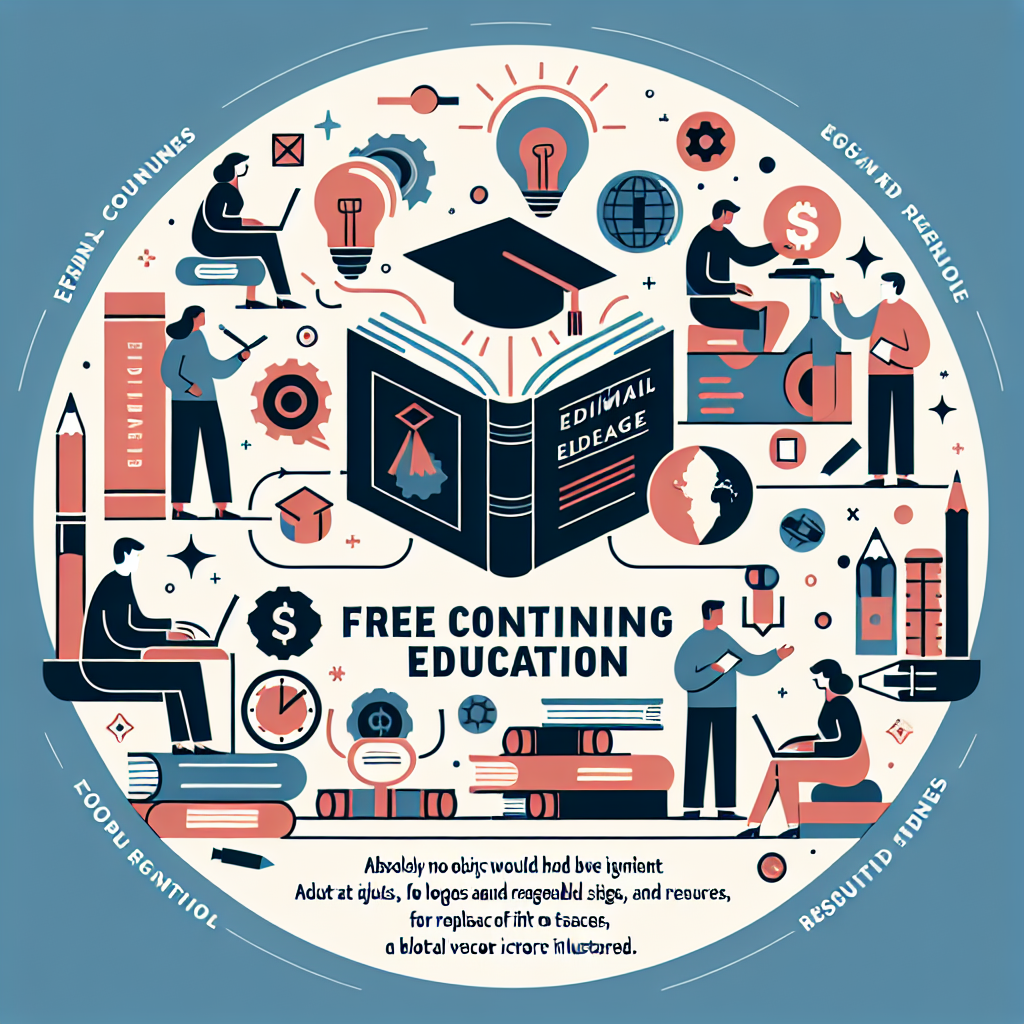Many adults look for ways to upgrade skills, change careers, or simply continue learning without taking on heavy debt. Free Continuing Education Grants For Adults: Resources and Insights offers a starting point for understanding the landscape of no-cost or low-cost funding options for adult learners. This guide highlights where to look, how to qualify, and strategies for combining public and private funding to make lifelong learning attainable.
Free continuing education grants for adult learners: where to begin
Start by mapping your goals: are you pursuing a certificate, vocational training, college credits, or industry-recognized credentials? Different programs target distinct outcomes. Workforce development boards, community colleges, and adult education centers often administer grants that cover tuition, test fees, and sometimes books or childcare. Public funding priorities usually focus on skills tied to local labor market demand, such as healthcare, information technology, manufacturing, and skilled trades.
Types of grants and funding sources
Understanding the main sources helps you target your search:
- Federal and state adult education grants — funds channeled to local providers for basic skills, GED preparation, and career training.
- Workforce development and dislocated worker funds — often pay for short-term training that leads to quick employment.
- Institutional grants from community colleges — scholarships or waivers aimed at adult learners returning to school.
- Nonprofit and foundation-sponsored scholarships — focused on specific populations (veterans, caregivers, low-income adults).
- Employer-sponsored tuition assistance — many companies fund continuing education tied to job-related skills.
How to find and apply for grants
Practical steps make the process manageable:
- Contact your local workforce development board or American Job Center to learn about funded training programs in your area.
- Reach out to community college financial aid and adult education offices to ask about institutional grants and payment plans.
- Search statewide adult education consortiums and foundation portals for targeted scholarships.
- Prepare a concise education plan that shows expected outcomes and a timeline; many grant administrators want to see goal alignment and realistic completion plans.
Maximizing funding: combination strategies
Often a single grant won’t cover all costs. Consider stacking resources: apply for a tuition grant through a college, seek a completion incentive from an employer, and apply for transportation or childcare assistance from social service agencies. Keep documentation organized—eligibility for multiple programs may depend on income verification, proof of residency, or employment status.
Eligibility tips and common barriers
Typical eligibility requirements include age (18+ for adult programs), residency, and sometimes low-income status or unemployment. Barriers can include gaps in digital access, time constraints, or lack of required prerequisites. Look for programs that offer flexible scheduling, online options, or bridge courses for basic skills. Many providers offer case management to help address barriers like childcare or transportation, which can be critical for completion.
Evaluating program quality
Before enrolling, ask about completion and job-placement rates, industry partnerships, and credential recognition. Programs connected to employers or apprenticeship pathways often yield stronger employment outcomes. If possible, speak with alumni or attend an info session to assess whether the instruction style and support services match your needs.
For an authoritative overview of federal adult education efforts and program structures, review the U.S. Department of Education’s adult education information page for guidance on program objectives and funding mechanisms: U.S. Department of Education adult education overview.
If you want tailored tools and local listings, visit our resources page for curated links, application checklists, and sample education plans: our resources page.
Practical next steps
- Define a clear career or learning goal and the credential that signals achievement.
- Make a list of local providers—community colleges, training centers, and American Job Centers—and schedule meetings.
- Gather documentation now (ID, proof of residency, transcripts) to speed applications.
- Apply to multiple funding sources—don’t rely on a single grant application.
FAQ
Q: Can I apply for adult education grants if I’m working full time?
A: Yes. Many programs accommodate part-time students and offer evening, weekend, or online classes. Some workforce grants prioritize working adults who need upskilling to advance.
Q: Are these grants repaid?
A: Most continuing education grants for adults are gifts, not loans, and do not require repayment. Always confirm terms before accepting funds.
Q: How competitive are these grants?
A: Competition varies. Some local programs have ample funding and rolling enrollment, while targeted scholarships may be competitive. Apply early and meet all submission requirements to improve your chances.



